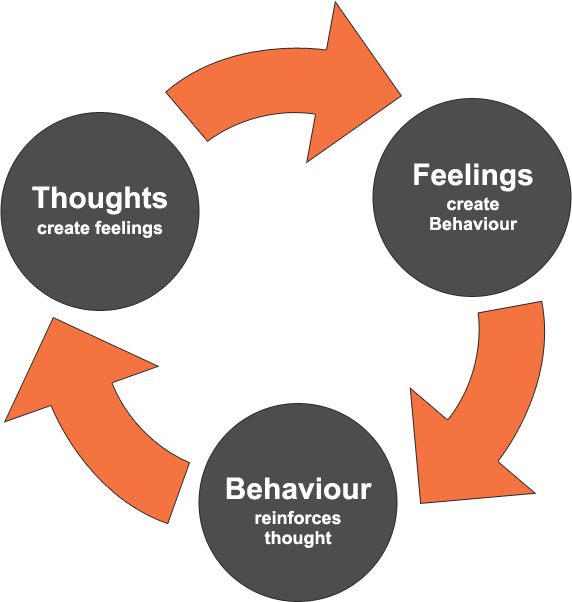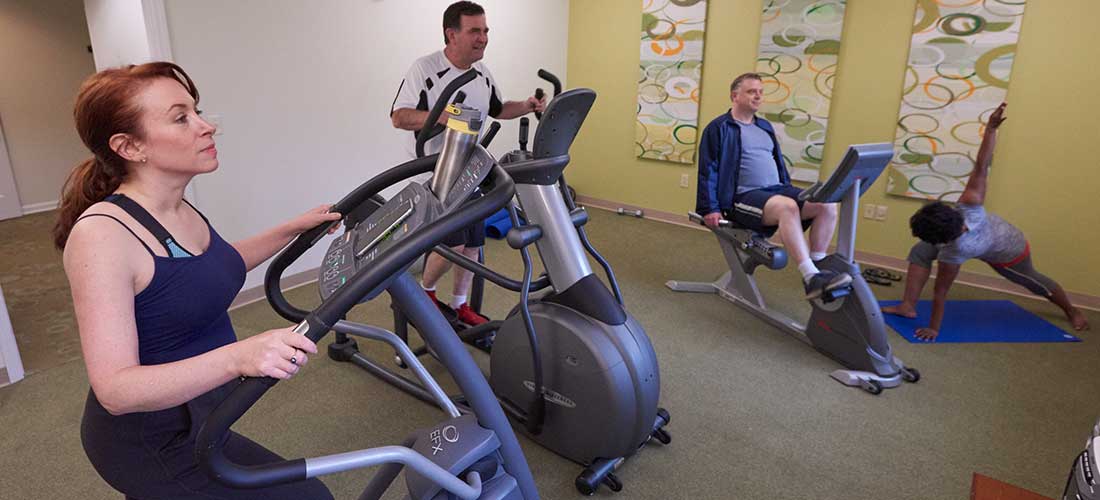7 Ways Skyland Trail Attacks Treatment-Resistant Depression
According to the World Health Organization, one in four people worldwide will experience some form of mental disorder during their lifetime, such as depression or anxiety. Of those nearly 450 million people, only one-third will eventually seek some form of treatment.
Most people with major depressive disorder who participate in evidence-based treatment experience improvement in their symptoms through a combination of medication and therapy. For those who don’t see clinically meaningful improvements, they may be struggling with treatment-resistant depression, also known as TRD.

Specialized, evidence-based treatment can help people battling treatment-resistant depression reduce their symptoms, improve functioning, and feel better.
Roughly one-third of people with major depressive disorder are affected by TRD. Despite engaging in psychotherapy and taking antidepressant medications, they just aren’t getting better. There are many factors that may play into people developing TRD such as genetics, an underlying health issue that continues to contribute to feelings of sadness or despair, improperly prescribed antidepressant medications, an incorrect diagnosis, interactions with other medications, and substance use disorders to name a few.
Specialized, evidence-based treatment can help people battling treatment-resistant depression reduce their symptoms, improve functioning, and feel better. Skyland Trail helps people recover from chronic depression through seven main strategies.
1. Diagnosing Treatment-Resistant Depression
The first step of fighting chronic depression is making a strong, clear, and accurate diagnosis. It’s pivotal for the treatment team to understand a client’s struggles, as well as strengths, to develop an individualized treatment plan to help the client make meaningful progress.
The Skyland Trail admissions team conducts interviews with both clients as well as their families to get as much information as possible about clients’ treatment history, symptoms, potential substance use or abuse, and their family or social history. This initial diagnosis helps establish a path for recovery; however, because people and mental illnesses are complex, the treatment team continues to gather data even after clients admit to ensure clients are matched with the most relevant and effective treatments.
Clients in the residential psychiatric treatment receive an extra layer of observation: the residential team is able to monitor and note daily habits outside of a typical counseling session that could provide useful information on a proper diagnosis and where additional support may be needed.
How someone eats, sleeps, takes their medication, and interacts with others can shed even more light on an individual’s specific needs. The key word is “individual.” Everyone is inherently different, so Skyland Trail does not use a one-size-fits-all approach to recovery and treatment.
2. Transcranial Magnetic Stimulation (TMS) for Treatment-Resistant Depression
Approved by the FDA in 2008 for the treatment of major depressive disorder, Skyland Trail offers transcranial magnetic stimulation (TMS) treatment services, which has been shown to be effective in reducing the symptoms of treatment-resistant depression. This non-invasive procedure is available to clients in residential treatment program for depression and clients participating in the Atlanta-based day treatment program for depression. TMS may also be available as an outpatient service.
More than half of people who receive TMS see positive results and a large portion may experience remission from their depressive symptoms. Although, TMS can be a powerful tool in recovery, it is not a permanent solution to mental illness.
3. Evidence-Based Psychotherapy for Treatment-Resistant Depression
While there are several psychotherapies available to fight treatment-resistant depression, cognitive behavioral therapy (CBT) has the most in-depth research support behind its effectiveness. When combined with antidepressant medication, CBT has been shown to help people zero in on and alter the negative core beliefs, cognitive distortions, and behaviors that are contributing factors to their depression. The main idea behind CBT is that thinking and action affect how people feel. Sometimes, people just get “stuck” in cycles of self-loathing, self-judgment, or self-defeating thoughts and actions. CBT is about disrupting that cycle.

While there are several psychotherapies available to fight treatment-resistant depression, cognitive behavioral therapy (CBT) has the most in-depth research support behind its effectiveness.
In addition to CBT, Skyland Trail utilizes other evidence-based psychotherapies for treatment-resistant depression:
Interpersonal Psychotherapy (IPT) – IPT examines how a client’s personal life impacts depression and helps people learn communication skills to effectively address their relationships with others.
Psychodynamic Psychotherapy – Commonly referred to as talk therapy, psychodynamic psychotherapy seeks to develop a client’s own insight and self-awareness in relation to how their past is affecting their current emotions.
Cognitive Behavioral Analysis System of Psychotherapy (CBASP) – Developed in 2000 by James McCollough, CBASP assumes that chronic depression stems from developmental trauma and an absence of safety in interpersonal settings.
Mindfulness-based Cognitive Therapy (MBCT) – Based on Jon Kabat-Zinn’s mindfulness-based stress reduction, MBCT helps individuals increase their awareness of cognitive processes that lead to depression while practicing acceptance rather than reaction.
Acceptance and Commitment Therapy (ACT) – ACT helps clients increase their psychological flexibility by separating difficult feelings from their own identity.
4. Treatment Model Adherence to Address Depression
In order to provide clients with the best possible care for adults with treatment-resistant depression, Skyland Trail therapists use treatment models to ensure their approach is in-line with their capabilities and expertise. Like other professions, therapists often specialize in a particular treatment modality. However, over years of training and experience, therapists may begin to incorporate different techniques and modalities into their sessions. This is called therapist drift and is common when working with clients with complex diagnoses; however, sticking to the research-based treatment model typically provides the best results when combating treatment-resistant depression.
Skyland Trail prevents therapist drift by embedding each therapist in a multidisciplinary treatment team that includes psychiatrists, other therapists, residential staff, and adjunctive counselors. The CBT treatment team meets weekly and discusses each CBT client’s progress and challenges that week. Treatment decisions are informed by the whole group and led by the psychiatrist. CBT model adherence helps guide the decision-making process. Skyland Trail therapists also participate in regular training to refresh their skills and learn about new research in the field and any resulting changes to the model.
5. Measurement-Based Psychiatric Care for Depression
By tracking symptoms in an objective way, clinicians are able to see the progress clients are making, or conversely identify where people may be getting stuck or stagnant in treatment. Skyland Trail utilizes industry-standard scales to track client progress. Following measurement-based care allows mental health providers to 1) more accurately define psychiatric treatment outcomes, 2) evaluate how clients are progressing, and 3) make appropriate adjustments to treatment in real-time. Some measurements may include:
- Montgomery-Asberg Depression Rating Scale
- Beck Hopelessness Scale
- Quick Inventory of Depressive Symptomatology
- Behavior & Symptom Identification Scale
6. Mind-Body Interventions to Combat Depression
Like many other mental illnesses, employing mind-body interventions can be very effective in treating treatment-resistant depression. Techniques like slow, deliberate breathing, posture manipulation, body movement, and even facial expression can generate short-term changes in mood and thinking.

Like many other mental illnesses, employing mind-body interventions can be very effective in treating treatment-resistant depression.
Skyland Trail’s integrated wellness programs include activities like yoga, meditation, weight training, and mindful movement. Skyland Trail also focuses on client nutrition and diet by providing healthy, well-balanced meals for breakfast, lunch, and dinner. Additionally, clients participate in life-skills courses that teach them how to grocery shop and prepare meals that can help them feel better.
7. Holistic Path to Wellness Aids Recovery from Depression
In addition to medication and counseling, clients in Skyland Trail’s residential and day treatment programs participate in a structured weekly schedule of therapeutic groups that help them make changes in all areas of their lives, from family relationships, to work-life balance, to how they manage their free time.
Groups include hands-on expressive therapies like music therapy, art therapy, and horticultural therapy. Clients interested in exploring spirituality as an aid in recovery may benefit from pastoral counseling, while clients struggling with work-life balance may develop new insight and skills in the vocational counseling program. Clients seeking to improve their relationships with spouses, partners, parents, or children often find family therapy very helpful.
Recovery from Treatment-Resistant Depression is Possible
Treatment-resistant depression can be difficult for both those dealing with it and their families, but through an integrated treatment model that focuses on treating both the illness and the person, Skyland Trail offers solutions that help clients live better, more productive, more meaningful, and more hopeful lives.
